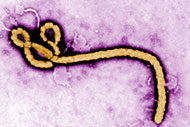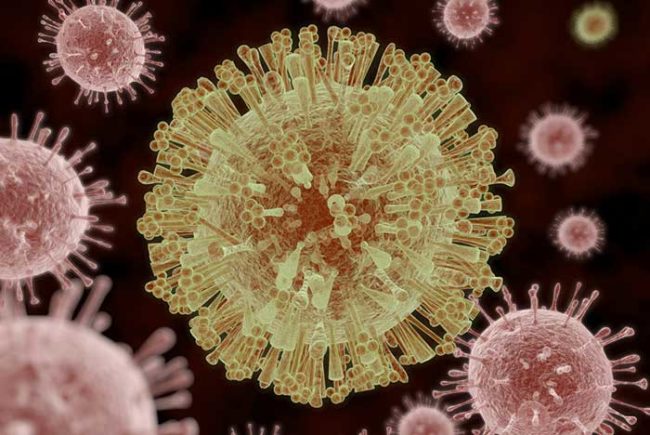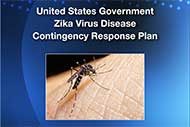Johns Hopkins opens first-known multidisciplinary Zika virus center
Johns Hopkins University School of Medicine, the Bloomberg School of Public Health and the Brazilian ophthalmology community on Wednesday opened what may be the first hospital-based center dedicated to the treatment and research of the Zika virus.
The Johns Hopkins Wilmer Zika Center will provide comprehensive care to patients with Zika, including infants diagnosed with virus-related congenital defects. The center also will conduct research to identify effective therapies and strategies to prevent transmission.
Johns Hopkins Wilmer Eye Institute has led the development of the new center which will be headed by Rubens Belfort Jr., M.D., Ph.D, one of Brazil’s foremost ophthalmic experts on Zika, and who will serve as the center’s adviser. William May, M.D., associate professor of ophthalmology will serve as its co-director.
“Patients will no longer be required to travel to multiple centers for care relating to Zika virus,” May says. “Physicians and staff members in various departments at Johns Hopkins will be available to provide comprehensive care to patients within one institution.”
Joint Commission surveyors asking 3 new questions prior to building tours
The American Society for Healthcare Engineering (ASHE) reports that Joint Commission life safety surveyors will kick off building tours with three questions:
-
What type of fire-stopping is used in the facility?
-
What is the organization’s policy regarding accessing interstitial spaces and ceiling panel removal?
-
Which materials are used (glutaraldehyde, ortho-phthalaldehyde, peracetic acid, etc.) for high-level disinfection or sterilization?
The questions are intended to spur conversations among surveyors and health care facility managers about common areas for findings, said Jim Kendig, the Joint Commission’s field director for surveyor management and development.
“They’re pretty straightforward — there’s no hidden agenda here,” Kendig said. “We’re just trying to get some information before we start the building tour.”
ASHE says Kendig issued formal direction to surveyors in July instructing them to ask these questions before the building tour. The group elaborates on Kendig’s reasoning behind the three questions in a recent post.
HHS awards more than $100 million to improve health center systems, infrastructure
The Department of Health & Human Services announced that more than $100 million will be given to 1,304 health centers in all 50 states, the District of Columbia, the five U.S. territories and the three Freely Associated States to invest in health center quality improvement. The health centers will use the funds to expand current quality improvement systems and infrastructure and to improve primary care service delivery in the communities they serve. The funding comes from the Affordable Care Act’s Community Health Center Fund.
ASPR issues tips for retaining, caring for health care facility staff after a disaster
The Department of Health & Human Services’ Office of the Assistant Secretary for Preparedness and Response issued tips to help health care facilities retain and care for staff after a disaster, such as the recent flooding in Louisiana. The resource says organizational leaders should consider employees’ needs such as shelter, transportation, food and water, personal hygiene supplies, day care, pet care and flexible scheduling.
“The aftermath of a disaster can be traumatic,” the resource notes. “People may want to return to work, but may be hampered by injury, caring for loved ones, or unable to access transportation. These tips can help health care facility executives to provide support for those who care so much for others, ensuring the continuity of a healthy, safe workforce and a resilient community at large.”
UV lamp effectively decontaminates keyboards: study
A study in the American Journal of Infection Control shows that automated lamps using ultraviolet spectrum light are effective in decontaminating keyboards. Researchers installed the lamps over keyboards and computer mice in the intensive care unit of an academic hospital in Chicago. The researchers say further studies are necessary to determine if it can lead to a reduction in health care-associated infections.
CDC issues summary of key Zika considerations for health care settings
The Centers for Disease Control and Prevention released a summary of key considerations for health care facilities as they prepare to receive patients potentially infected with the Zika virus. The document outlines nine steps health care facilities should take, including knowing the clinical manifestations of the virus, how to assess pregnant women and advice against sexual transmission during pregnancy, reporting and use of standard precautions.
NFPA compiles resources to comply with new CMS requirements
The National Fire Protection Association (NFPA) compiled resources to help health care facilities meet requirements laid out by the Centers for Medicare & Medicaid Services (CMS) to help them comply with recently adopted NFPA codes.
CMS adopted the 2012 editions of NFPA 99 and 101 in May. Hospitals have until November to comply with the new rules.





